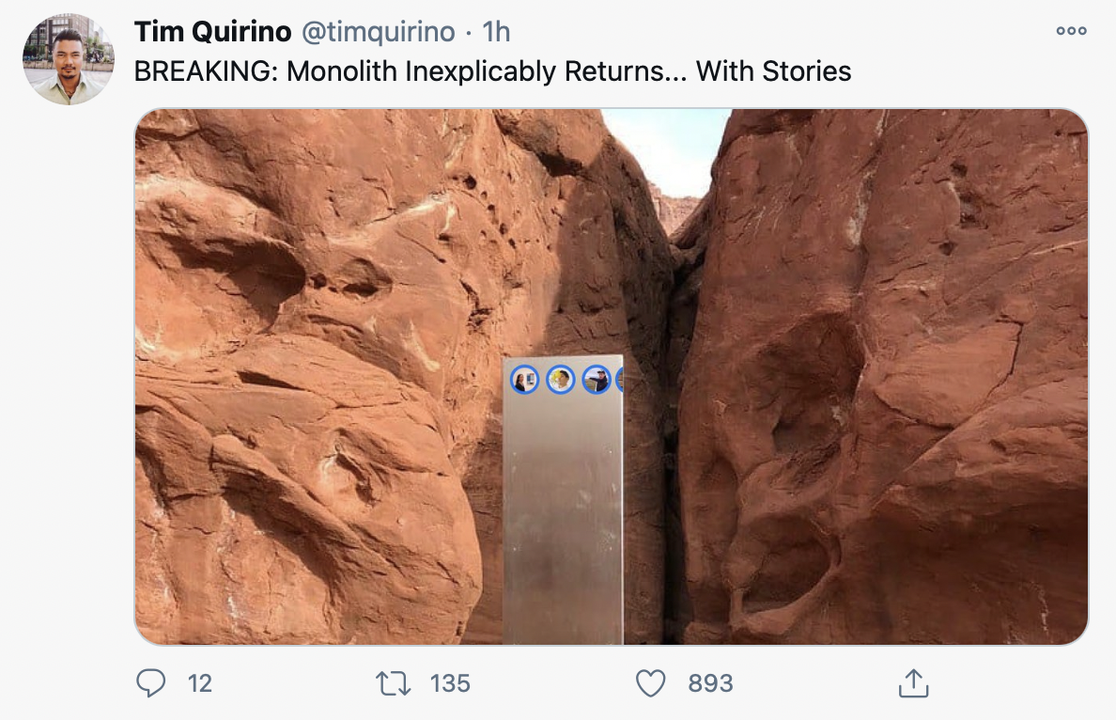| | | | | | | Presented By Charter Communications | | | | Login | | By Ina Fried ·Dec 01, 2020 | | Join Axios tomorrow at 12:30pm ET for a virtual event on plastic waste and the future of recycling, featuring Rep. Haley Stevens (D-Mich.), Closed Loop Partners managing director Bridget Croke, and The Recycling Partnership founder and CEO Keefe Harrison. Today's Login is 1,418 words, a 5-minute read. | | | | | | 1 big thing: Salesforce rolls the dice on Slack |  | | | Illustration: Sarah Grillo/Axios | | | | Salesforce's likely acquisition of workplace messaging service Slack — not yet a done deal, but widely anticipated to be announced Tuesday afternoon — represents a big gamble for everyone involved, Axios' Scott Rosenberg and I report. For Slack, challenged by competition from Microsoft, the bet is that a deeper-pocketed owner like Salesforce, with wide experience selling into large companies, will help the bottom line. For Salesforce, the hope is that adding a hot, widely recognizable brand will give its business-service portfolio an edge. For all concerned, the wager is that making the right corporate combination can work some transformational magic on the united businesses and make 2+2 equal 5. That's a bet tech companies keep making — even though most of the time, they lose. - Occasionally, deals like Facebook's 2012 purchase of Instagram, Google's 2006 YouTube buy, or its 2007 acquisition of DoubleClick, turn out to be brilliant long plays that fundamentally expand a company's opportunities.
- For every deal like these, there are many others that prove only moderately successful — like, say, Microsoft's 2016 purchase of LinkedIn — or downright disastrous.
Many Big Tech acquisitions are a lose-lose game, too often played by pairs of declining companies where one side has too much money and the other too little. - After spending more than $7 billion on Nokia in 2014, Microsoft had to write down most of the expense, and it had largely exited the phone business within 2 years.
- Rupert Murdoch's News Corp bought MySpace for $585 million in 2005, and sold it for $35 million in 2011.
- In 2000, AOL acquired Time Warner in a $182 billion "deal of the century" that went south in the dotcom bust and hobbled both companies for the remainder of their lives.
Yes, but: Salesforce and Slack don't fit that description, and neither seems to be acting out of desperation. - Salesforce pioneered the software-as-a-service industry, but it hasn't cracked the top tier of Big Tech valuation, and its recent growth has been goosed by purchases of services widely used by business people. In the past Salesforce has made runs at Twitter and LinkedIn, and Slack represents a similar bid to help it reach a broader market.
- Slack's road to popularity started with early-enthusiast developers and snowballed with the pandemic-driven shift to remote work. Even so, it faces new pressures to grow faster and turn a profit since going public last year.
Between the lines: Along with Zoom, Slack looked to be one of the tech companies most likely to benefit from the era of social distancing. - But Microsoft's success with offering Slack-like communications via its Teams product has cut into the firm's growth, analysts say.
- Big Tech critic Scott Galloway describes Microsoft as a "Death Star" that's squashing rebel startups like Slack.
The bottom line: If Slack does sell to Salesforce, it's a sign that even the pandemic's "winners" aren't doing as well as might be expected — and that prevailing against Big Tech remains a hard bet. |     | | | | | | 2. Ajit Pai's FCC departure sets up Senate fight | | Federal Communications Commission chairman Ajit Pai's decision to leave the agency Jan. 20, announced Monday, ups the pressure on the Senate to confirm a Trump nominee to the commission during the lame-duck period, Axios' Margaret Harding McGill reports. Why it matters: Pai's departure will position the Biden administration with an immediate 2-1 majority at the agency, which regulates wireless companies, cable and internet providers and broadcast stations. Yes, but: A Senate confirmation vote for Trump-FCC nominee Nathan Simington would give Republicans the ability to block Democratic policy initiatives at the agency by deadlocking the commission at 2-2. - A Biden nominee would have to go through the Senate confirmation process to give Democrats the majority at the five-member commission if Simington is confirmed.
What they're saying: Grover Norquist, president of Americans for Tax Reform, urged Senate Majority Leader Mitch McConnell to confirm Simington to "forestall billions in economic damage" by setting up a 2-2 FCC, according to a letter shared with Axios. - "The FCC could continue to pursue important initiatives on a bipartisan basis, but it would be blocked from jamming through partisan initiatives — whether those involve profligate spending or an anti-growth agenda," Norquist wrote.
What's next: The Senate Commerce Committee has scheduled a vote Wednesday on Simington's nomination. |     | | | | | | 3. Facebook, Google push deals despite antitrust scrutiny |  | | | Illustration: Eniola Odetunde/Axios | | | | Although an antitrust suit could come any time now, Facebook announced Monday that it has purchased a customer service chatbot startup called Kustomer, Axios' Sara Fischer reports. The app reportedly cost Facebook $1 billion, the same amount it paid for Instagram in 2012. Why it matters: The deal is the latest sign that the world's biggest tech companies, despite facing enormous antitrust scrutiny globally, will not stop buying up other companies. The antitrust pressure is increasing as both companies continue to grow during the pandemic. Be smart: For both Google and Facebook, recent acquisitions aim to bolster new businesses. - Facebook earlier this year launched Facebook Shops, its most aggressive push yet into e-commerce. It also added a dedicating shopping tab to its main app in August, and more recently added a shopping tab to Instagram as well.
- Google's Fitbit deal jibes with an expansion beyond search into areas like hardware and wearables.
The bottom line: It's harder for regulators to prove that companies like Facebook and Google hold monopolies when they are new entrants in a market, so the companies' acquisitions in newer lines of business may not set off alarms. Go deeper: Members of Congress finding agreement on a tech antitrust agenda |     | | | | | | A message from Charter Communications | | Charter is building connections to empower opportunity | | |  | | | | Charter is building more connections to empower opportunity from coast to coast. We've reached 1.5 million new homes and businesses in the past two years alone – about a third were in rural areas. Learn more about how Charter is empowering opportunity. | | | | | | 4. Facebook oversight board picks first cases to hear | | More than 20,000 people have submitted cases to Facebook's independent Oversight Board since the board started accepting user appeals in October, the organization announced Monday, and it has selected six initial cases for review, Sara and Scott report. Why it matters: The number of submissions speaks to the multitude of people who feel the platform's moderation of their content has wronged them. The tiny number of cases getting reviewed speaks to the limits of human oversight on a platform the size of Facebook, as well as to the novelty of the board's process and the complex nature of the cases chosen. Details: The board's six cases, each from a different country around the world, address controversial issues, ranging from terrorism to nudity, and all six represent appeals by users who want to reverse Facebook's decision to take down their posts. The cases: - In one case, Facebook removed a user's post quoting violent rhetoric from former Malaysian Prime Minister Mahathir Mohamad, but the user says the post was intended to spread awareness of the "horrible words."
- Another case involves a user's posting an argument about differing treatment of churches and mosques in Armenia and Azerbaijan.
- A user in Brazil posted photos depicting breast cancer to raise awareness, but Facebook took them down because nipples were showing.
- A quote from Nazi propaganda minister Joseph Goebbels appeared in a post by a U.S. user who says he intended it to underscore a slide toward fascism in America. Facebook removed the post under its "Dangerous Individuals and Organizations" policy.
- The only case that was referred to the board by Facebook itself, rather than users, involves the removal of COVID-19 misinformation.
Our thought bubble: The pattern here is, users are trying to make complex points about thorny issues and Facebook keeps applying literal-minded bans. - The challenge for the Oversight Board will be discerning whether users are posting these arguments in good faith or trying to make end runs around Facebook's rules.
What's next: The board says that within 90 days it expects to reach decisions that Facebook must act on. |     | | | | | | 5. Take Note | | On Tap Trading Places - Longtime venture capitalist Josh Elman said he has joined Apple to work on its App Store efforts.
- Instacart has hired Belinda Garza Hartwig as director of federal affairs. She was previously VP of economic development for San Antonio's Chamber of Commerce. Prior to that, she was a lobbyist in Washington, D.C. for 14 years.
ICYMI |     | | | | | | 6. After you Login | | About that missing monolith statue in Utah ... Maybe it was just getting a software update to keep up with fleets. |     | | | | | | A message from Charter Communications | | Charter is investing in their employees | | |  | | | | Charter's 95,000 employees are their greatest resource – stepping up to keep communities connected. That's why Charter is proud to invest in them. Employees earn at least 2x the federal minimum wage – and Charter is permanently increasing its minimum wage to $20 per hour. | | | | | | Axios thanks our partners for supporting our newsletters.
Sponsorship has no influence on editorial content. Axios, 3100 Clarendon Blvd, Suite 1300, Arlington VA 22201 | | | You received this email because you signed up for newsletters from Axios.
Change your preferences or unsubscribe here. | | | Was this email forwarded to you?
Sign up now to get Axios in your inbox. | | | | Follow Axios on social media:    | | | | | |






No comments:
Post a Comment